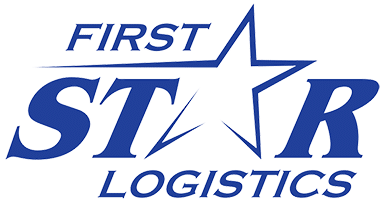Any solid business relationship has a mutually beneficial contract that protects the interests of both parties, shipper-broker relationships included. A broker-shipper agreement serves as the foundation for the relationship and sets the terms for both the shipper and the broker. In this guide, we look closely at broker-shipper agreements – discussing their importance and purpose and sharing tips to avoid common pitfalls.
Broker-Shipper Agreement, Defined
A broker-shipper agreement is a legally binding contract that outlines the responsibilities of the broker and shipper. The agreement’s contents are based on regulations set by the Federal Motor Carrier Safety Administration (FMCSA) and the Department of Transportation. Shippers and brokers also add to the baseline standards to address their unique business needs and concerns.
The broker-shipper agreement includes details such as:
- Names of the parties involved in the agreement
- Duration of the contract
- Services the broker provides
- Amount and types of carrier insurance required
- Liability terms and limits
The Importance of Shipper-Broker Agreements
Because the FMCSA and DOT have established regulations that govern the business relationships between shippers and brokers, many may wonder if a formal contract is necessary. The short answer is yes, and here is why.
The regulations go a long way in protecting the business interests of shippers and brokers. However, the regulations are broad, and many details that might be pertinent to individual transactions are not specifically laid out. Agreements are crucial because they are the best opportunity to clarify everyone’s expectations and responsibilities. Negotiating these details in advance is much easier than dealing with an issue completely unprepared.
What is the purpose of a shipper-broker agreement?
Shipper-broker agreements serve two main purposes.
1. Define the Working Relationship:
Each party should include items and expectations that are important to them to minimize opportunities for misunderstandings, dissatisfaction, or disagreements down the road. It is best practice to:
- Define contacts to reach out to if an issue arises.
- Detail expectations for availability and communication
- Specify the fuel surcharge and negotiate to get the best possible rates.
- List requirements for carriers that the broker chooses that may include safety ratings, experience levels, equipment, etc.
2. Clarify Liabilities
The goal is always to have smooth deliveries, but issues can and do arise. A shipper-broker agreement prepares both parties so that there is a plan to follow when something goes wrong. Having a thorough document saves time and prevents disputes down the road.
Tips for Avoiding Common Broker-Shipper Agreement Issues
It can be challenging to write a fair contract. This is not legal advice; it is best to consult a lawyer. Here are some common issues and how to avoid them.
- Wrong Type of Contract: A common mistake is to use a generic or random template as a broker-shipper agreement; however, not just any contract will work. Contracts are very specific and must be used for their intended purposes. If you want to use a template, that’s fine, but make sure it is specifically for a broker-shipper agreement. The contract must include details about the duration of the contract, the services each party will provide, insurance details, liability limits, compliance and regulations, and procedures for resolving issues.
- Incorrect Carrier Insurance Requirements – Another common mistake is to include incorrect carrier insurance requirements. Many people may ask for insurance coverage that is much higher than anyone carries to leave out the requirement altogether. It is best practice to require insurance amounts in line with market rates so that you have the best possible coverage and optimal choice of carriers. If you require higher insurance coverage than is standard for the market, brokers may not be able to find carriers for the job.
- Broad Indemnification Sections – Another common mistake is to use broad language when specific language is more appropriate, especially in the indemnification sections. These sections outline what happens if one party is damaged in any way due to the partnership. The wording of these sections is important to ensure the terms are useful. It can be tempting to use broad language to cover all the bases, but it can make it harder to take action if an issue arises later on. Be clear and direct to avoid confusion or disagreements down the road.
Learn More
When you need legal advice, it is best to consult with a lawyer. Although this guide is not a substitute for talking to a lawyer, we do know a thing or two about broker-shipper agreements. To learn more about shipper-broker agreements and anything else related to freight, look no further than First Star Logistics.
First Star Logistics is a unique asset-based global brokerage company with over 60 years of experience. We take great pride in meeting the needs of our customers, carriers, brokers, and agents. For our customers, we understand that efficiency, safety, and reliability are crucial. We use fast, cutting-edge technology to ensure a satisfactory experience with our specialized shipping services. We support our carriers with the technology, management, resources, and support they need to ensure safe, on-time delivery for FTL and LTL shipments. We provide our agents and brokers with a dedicated management team and proprietary software that empowers our employees to succeed.
To work with First Star Logistics, contact us today!



